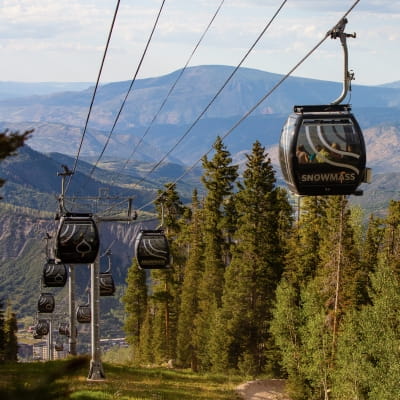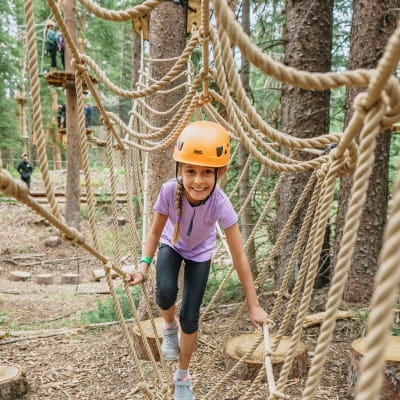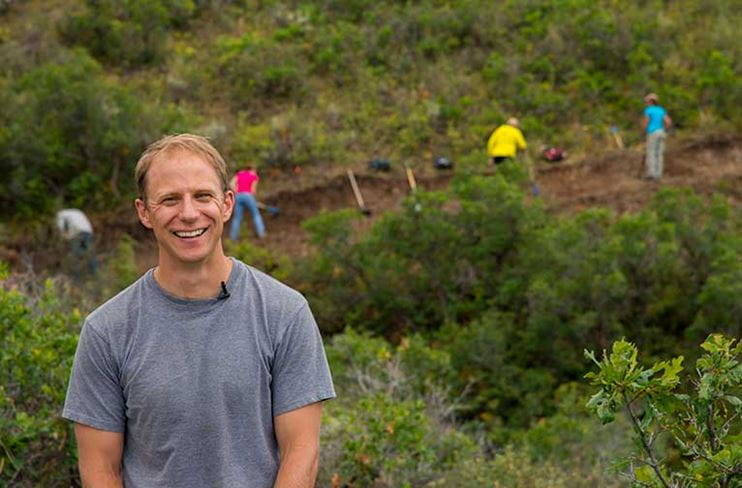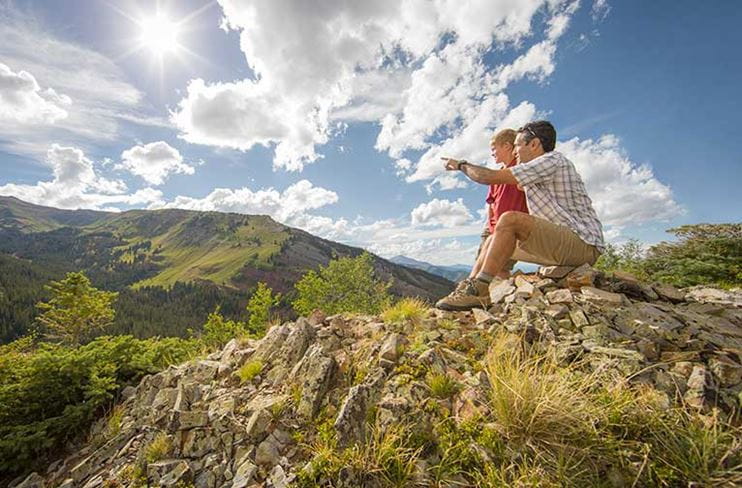Protect the Bells

Maroon Bells Hotline
970-930-6442
The Maroon Bells are popular for a good reason. Their unique beauty begs for Instagram and selfies, and the area's trails offer a portal to raw, pristine wilderness.
But with popularity comes added responsibility from all of us. The diverse ecosystems that define the area's beauty and tranquility are fragile and easily disturbed. Because of this, Aspen Snowmass, the U.S. Forest Service, the Aspen Resort Chamber Association, and local residents of the Roaring Fork Valley ask that you treat this special place as if it were your own backyard. That means ...
Leave No Trace
Stay on Marked Trails
This guidance pertains to every part of the area, but especially in the tundra ecosystem above treeline. "Social trails" (i.e. informal paths caused by careless hikers) can leave scars on the tundra for decades. That's because the organisms that thrive in the tundra operate on a different growth cycle. They are slow to take root, slow to regenerate, and particularly prone to disturbances. At lower altitudes, social trails can cause additional problems, such as leading hikers astray. The solution? Follow marked paths and above treeline, look for rock cairns (i.e. human-made rock pyramids) to stay on course.
Pack Out Everything
From plastic bags to biodegradable refuse (yes, even apple cores), you MUST take out everything you bring in to the area. Trash has a major negative impact on the ecosystems of the Maroon Bells. It can contaminate the groundwater, lakes and streams. It can be ingested by animals large and small. It can damage the unique and fragile flora that grows here. And it is unsightly. Pack it in? Take it out. Fines can and will be levied to those who litter.
Do Not Approach (and Definitely Don't Feed) Wildlife
The Maroon Bells-Snowmass Wilderness Area (and the ecosystems that surround it) are home to a variety of large animals including red fox, coyotes, raccoons, porcupines, bobcat, mountain lion, black bears, mountain goats, bighorn sheep, mule deer, elk and moose. If you encounter any of these animals, view them from a safe distance. Moose can be especially aggressive if approached, particularly mothers with newborn calves. Bull moose and bull elk can be aggressive during the fall "rut" season. For hooved animals, it is advised that you maintain a safe distance of 50 yards minimum at all times and all seasons. For black bears and wild cats, a greater distance is required. Colorado Parks and Wildlife is an excellent resource for information on safely encountering Colorado's wildlife.
And one more thing: We get it. The little chipmunk on the rock next to you at lunch is cute, but she needs to find her own food. Animals that rely on handouts from humans often die from poor diet, and/or an inability to find their own food in colder seasons when people are less common. Keep the PBJ for yourself, and pick up any food that falls on the ground.
Keep Pets on a Leash
While we fully understand that your dog would love to enjoy the freedom of the wilderness, all pets must be on a leash at all times in the Maroon Bells area. Unleashed pets can cause stress to local animal populations and their footprints can lead to the degradation of plants. Their waste can also be harmful, so please bring bags to pack out all poop.
People from around the world visit the Maroon Bells to enjoy their peacefulness and tranquility. Uncontrolled pets can disturb the peace, so make sure to keep your pets on leash at all times, for the enjoyment of everyone.
Interested In Volunteering?
Protecting the Bells is a team effort. Aspen Snowmass is proud to be a partner with the following organizations who have worked tirelessly to preserve, protect and maintain the fragile ecosystems of the Maroon Bells-Snowmass Wilderness Area. Volunteer with them this year — the rewards are immense!
Summer Adventure for Everyone
During summer, snowy slopes are replaced with meadows of wildflowers, and activities shift to mountain biking, hiking, ziplines, ropes courses, family-friendly Sightseeing, and the Breathtaker Alpine Coaster, all concentrated on Snowmass and Aspen Mountain.

Sightseeing
Let our gondolas and chairlift deliver you to incredible views, delicious outdoor meals, unique on-mountain events, and a season full of discovery.

Lost Forest
Discover endless adventure at Lost Forest with ziplines, ropes courses, an alpine coaster, miles of hiking trails, fishing, disc golf, a climbing wall, and more.

Snowmass Bike Park
With 25 miles of downhill trails, join us for a free flowing adventure through our high elevation evergreen forests and moderately pitched Aspen tree groves.
Sustainability

